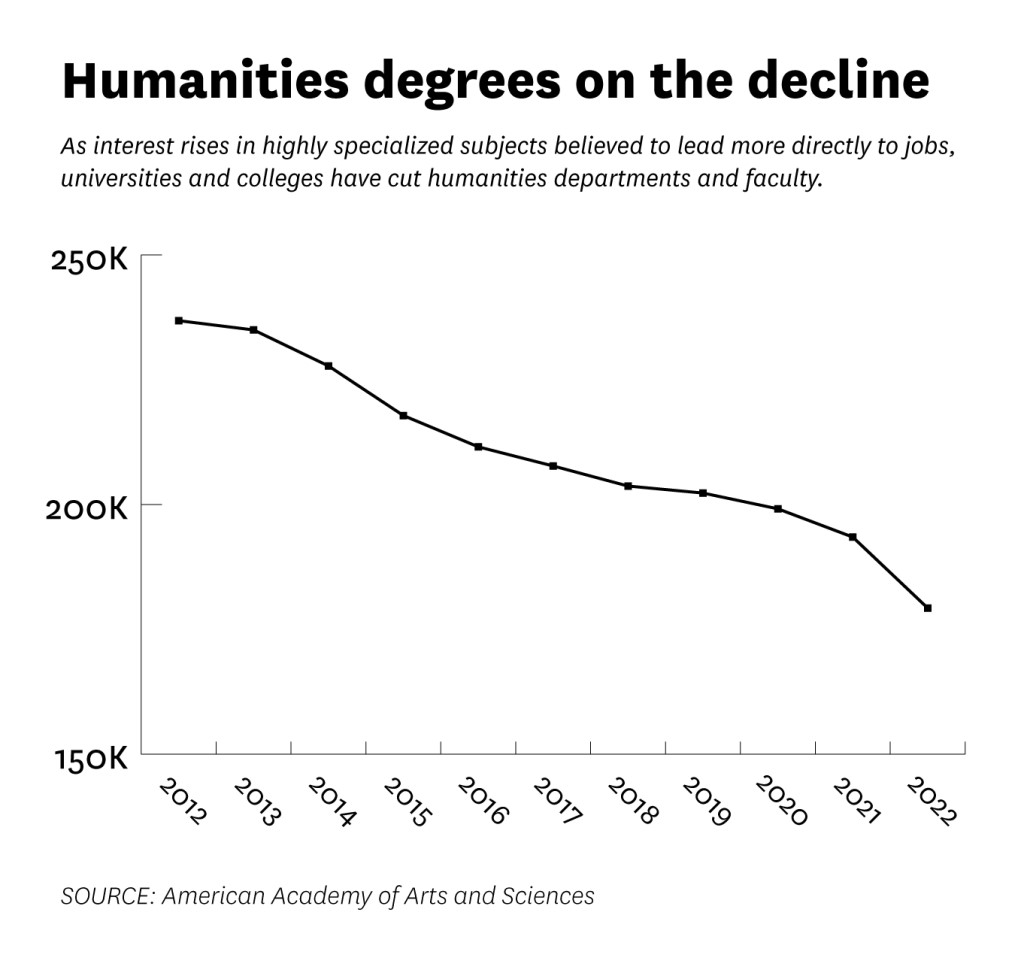TUCSON, Ariz. — Olivia Howe was hesitant at first to add French to her major in finance at the University of Arizona, fearing that it wouldn’t be very useful in the labor market.
Then her language skills helped her land a job at the multinational technology company Siemens, which will be waiting for her when she graduates this spring.
“The reason I got the job is because of my French. I didn’t see it as a practical choice, but now I do,” said Howe, who, to communicate with colleagues and clients, also plans to take up German. “The humanities taught me I could do it.”
The simple message that majoring in the humanities pays off is being pushed aggressively by this university and a handful of others; they hope to reverse decades of plummeting enrollment in subjects that teach skills employers say they need from graduates but aren’t getting.
The number of undergraduates majoring in the humanities at the University of Arizona has increased 76 percent since 2018, when it introduced a bachelor’s degree in applied humanities that connects the humanities with programs in business, engineering, medicine and other fields. It also hired a humanities recruitment director and marketing team and started training faculty members to enlist students in the major with the promise that an education in the humanities leads to jobs.
That’s an uncharacteristic role for humanities professors, who have tended to resist suggestions that it’s their role to ready students for the workforce.
But it’s become an existential one.
Nationwide, between 2012 and 2022 the number of undergraduate degrees awarded in the humanities — English, history, languages, literature, philosophy and related subjects — fell 24 percent, according to the American Academy of Arts and Sciences. It’s now below 200,000 for the first time in more than two decades.
